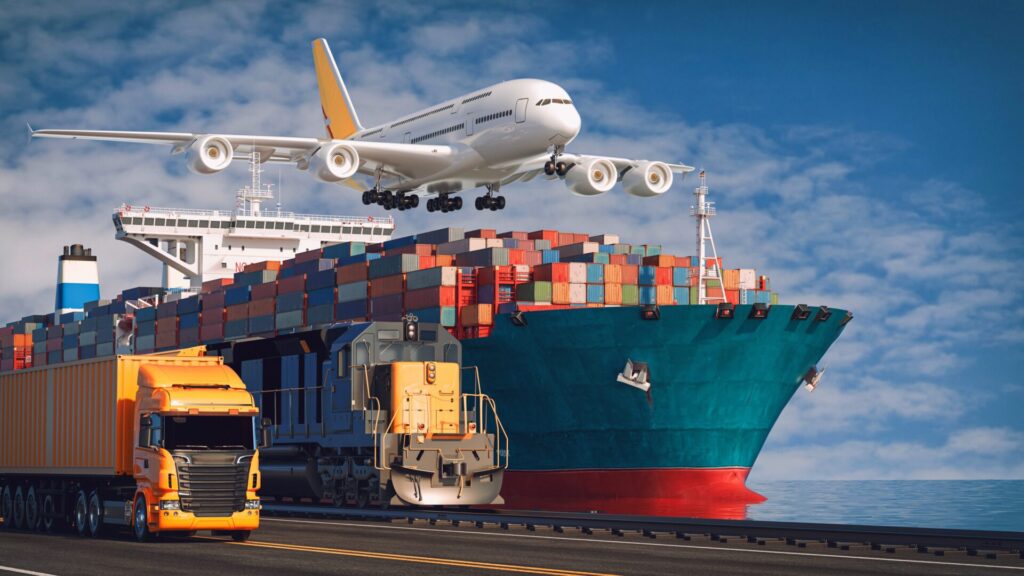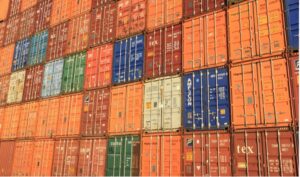The China-UK Cargo Train, also known as the China-Europe Railway Express, is a freight rail service that connects China with Europe, passing through countries such as Kazakhstan, Russia, Belarus, Poland, Germany, Belgium, and France. The service was launched in 2011 as part of China’s Belt and Road Initiative, a global development strategy that aims to enhance connectivity and cooperation among countries along the ancient Silk Road and beyond. The first cargo train from China to the UK arrived in London in January 2017, marking a historic milestone in the bilateral trade and economic relations between the two countries.
History and Development of the China-UK Cargo Train

The idea of a cargo train from China to Europe dates back to the 1990s, when China and Kazakhstan agreed to build a railway linking the two countries. The project was completed in 2000, opening up a new route for transporting goods between Asia and Europe. In 2011, China launched the first cargo train from Chongqing to Duisburg, Germany, covering a distance of about 11,000 kilometers in 16 days. Since then, the service has expanded to more than 60 Chinese cities and over 50 European destinations, including London, Paris, Madrid, Hamburg, and Milan. The China-UK Cargo Train operates from several Chinese cities, such as Yiwu, Zhengzhou, Wuhan, and Xi’an, and arrives at the Barking Rail Freight Terminal in London, the UK’s largest intermodal freight terminal. The journey takes about 18 days, depending on the route and the customs clearance procedures. The train carries various types of goods, such as clothing, electronics, machinery, furniture, medical supplies, and agricultural products.
Benefits of the China-UK Cargo Train for International Trade
The China-UK Cargo Train offers several advantages for international trade, such as:
- Cost-efficiency: The cargo train is cheaper than air freight and faster than sea freight, making it an attractive option for traders who want to save time and money. According to the China Railway Corporation, the cargo train can reduce the transportation cost by 30% to 50% compared to air freight and by 40% to 70% compared to sea freight.
- Environmental-friendliness: The cargo train is more environmentally friendly than other modes of transportation, as it consumes less energy and emits less carbon dioxide. According to a study by the International Union of Railways, the cargo train can reduce the carbon footprint by 62% to 66% compared to air freight and by 25% to 35% compared to sea freight.
- Reliability and safety: The cargo train is more reliable and safe than other modes of transportation, as it is less affected by weather conditions, traffic congestion, and geopolitical risks. The cargo train also has a high security level, as it is monitored by GPS and CCTV systems and guarded by railway police and customs officers.
- Market access and diversification: The cargo train can help traders access new markets and diversify their products and customers. The cargo train connects China with Europe, which are two of the world’s largest markets, accounting for about 40% of the global GDP and trade. The cargo train also passes through countries along the Belt and Road Initiative, which are emerging markets with huge potential for growth and cooperation.
Comparison with Other Transportation Modes

The cargo train from China to UK is not the only option for transporting goods between the two countries. There are also other modes of transportation, such as air freight, sea freight, and road freight. Each mode has its own strengths and weaknesses, depending on the factors such as cost, speed, capacity, and environmental impact. The table below compares the four modes of transportation based on these factors:
Table
| Mode | Cost | Speed | Capacity | Environmental Impact |
|---|---|---|---|---|
| Air freight | High | Fast | Low | High |
| Sea freight | Low | Slow | High | Medium |
| Road freight | Medium | Medium | Medium | Medium |
| Cargo train | Medium | Medium | Medium | Low |
As the table shows, the cargo train is a balanced option that combines the advantages of air freight and sea freight, while avoiding their disadvantages. The cargo train is also more competitive than road freight, as it can bypass the traffic jams and border controls that often hamper the road transportation.
Routes and Destinations of the China-UK Cargo Train

The cargo train from China to UK has several routes and destinations, depending on the origin and destination cities, the transit countries, and the railway operators. The main routes and destinations are:
- Yiwu-London: This is the longest and most popular route, covering a distance of about 12,000 kilometers and passing through Kazakhstan, Russia, Belarus, Poland, Germany, Belgium, and France. The train departs from Yiwu, a city in Zhejiang province that is known as the world’s largest wholesale market for small commodities, and arrives at London, the capital and largest city of the UK. The train operates once a week and carries about 200 containers per trip.
- Zhengzhou-London: This is the second longest and most frequent route, covering a distance of about 10,000 kilometers and passing through Kazakhstan, Russia, Belarus, Poland, Germany, Belgium, and France. The train departs from Zhengzhou, a city in Henan province that is a major transportation and logistics hub in central China, and arrives at London. The train operates twice a week and carries about 100 containers per trip.
- Wuhan-London: This is the third longest and most recent route, covering a distance of about 9,500 kilometers and passing through Kazakhstan, Russia, Belarus, Poland, Germany, Belgium, and France. The train departs from Wuhan, a city in Hubei province that is a major industrial and commercial center in central China, and arrives at London. The train operates once a week and carries about 50 containers per trip.
- Xi’an-London: This is the shortest and least frequent route, covering a distance of about 8,500 kilometers and passing through Kazakhstan, Russia, Belarus, Poland, Germany, Belgium, and France. The train departs from Xi’an, a city in Shaanxi province that is the starting point of the ancient Silk Road and a cultural and historical landmark in China, and arrives at London. The train operates once a month and carries about 40 containers per trip.
Challenges and Solutions in Operating the China-UK Cargo Train

The cargo train from China to UK faces several challenges in its operation, such as:
- Technical and logistical issues: The cargo train has to deal with technical and logistical issues, such as different railway gauges, voltage standards, signaling systems, and customs clearance procedures in different countries. These issues can cause delays, damages, and losses in the transportation process. To overcome these issues, the cargo train operators have to coordinate with the railway authorities, customs agencies, and logistics companies in each country, and adopt standardized equipment, documents, and protocols.
- Political and economic risks: The cargo train has to cope with political and economic risks, such as trade disputes, sanctions, tariffs, currency fluctuations, and security threats in different countries. These risks can affect the demand, supply, and price of the goods, and the stability and safety of the transportation. To mitigate these risks, the cargo train operators have to monitor the market trends, policy changes, and security situations in each country, and adjust their strategies, contracts, and insurance accordingly.
- Competition and cooperation: The cargo train has to compete and cooperate with other modes of transportation, such as air freight, sea freight, and road freight, as well as other cargo train operators, in the international trade market. These factors can influence the market share, profitability, and reputation of the cargo train. To enhance their competitiveness and cooperation, the cargo train operators have to offer high-quality, low-cost, and customized services, and establish strategic partnerships and alliances with other stakeholders.
Impact of the China-UK Cargo Train on the Economies of China and the UK

The cargo train from China to UK has a positive impact on the economies of both countries, such as:
- Boosting trade and investment: The cargo train can boost the trade and investment between China and the UK, by increasing the volume, value, and variety of the goods exchanged, and by facilitating the flow of capital, technology, and information. According to the China-Britain Business Council, the trade volume between China and the UK reached 79.03 billion US dollars in 2019, an increase of 7.8% from 2018, and the UK was China’s second-largest trading partner in the European Union. The cargo train can also help the UK diversify its trade partners and reduce its dependence on the European Union, especially after Brexit.
- Creating jobs and income: The cargo train can create jobs and income for both countries, by stimulating the demand and supply of goods and services, and by generating tax revenues and profits. According to a report by the Centre for Economics and Business Research, the cargo train can create about 2,000 jobs and 1.2 billion pounds of income for the UK economy by 2020, and about 16,000 jobs and 10.4 billion pounds of income by 2030. The cargo train can also benefit the local communities and industries along the route, by providing employment opportunities and market access.
- Enhancing innovation and cooperation: The cargo train can enhance the innovation and cooperation between China and the UK, by fostering the exchange of ideas, knowledge, and skills, and by promoting the development of science, technology, and education. According to the UK Department for International Trade, the cargo train can support the UK




